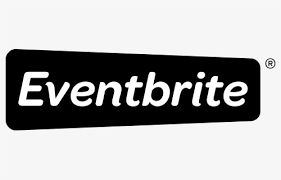Music Biz Basics
A 101 Type Guide to the Basics of the Music Business with Music Business Attorney Kamal Moo

Kamal Moo, Entertainment Attorney
Gateway Blog category interest
Welcome to Music Biz Basics, a new feature in the Gateway Blog and MusicBizHub, that we hope will be a monthly guide to the ins-and-outs of the music business, with guest contributor, entertainment lawyer Kamal Moo. This guide is meant to help break down some of the difficult to navigate elements of the music business to their bare essentials in an easy-to-understand guide, meant to help aspiring musicians find their footing.
Disclaimer: this article is for informational purposes only and should not be considered legal advice. If you are ever in a situation where you need legal advice, you should contact a knowledgeable attorney.
What are some of the steps I should take to protect myself if I’m a new artist who writes and records my own music?
1. Contracts. The first step is to ensure you have proper contracts in place. That is, anyone you collaborate with to make music should sign an agreement, whether it be producers, songwriters, side musicians, engineers, etc. The reasoning behind this is simple: when two or more people create a copyrightable work (like a musical composition or sound recording), the default view of the law is that each creator is an equal owner in that work.
So, you can imagine if you’re an artist or indie record label that you’re going to have a difficult time distributing, marketing and promoting records if everyone who worked on them is a co-owner. This is why your contracts should have language transferring their ownership rights to you or your label, usually in exchange for a fee and/or some backend royalties.
Along the same lines, if you’re starting a band, it’s important that all the members sign some type of partnership agreement so it’s clear how decisions will be made and ownership and income will be divided. Some bands who achieve success will want to consider forming a business entity such as an LLC or corporation to better organize themselves and provide some liability protection.
2. Copyright. Next, it’s a good idea to go to www.copyright.gov to register your music for copyright protection. There are two copyrights involved when it comes to music: (a) the musical composition, and (b) the sound recording. You should research the differences between the two and make sure you protect both.
Related Article: A Discussion with Music Attorney Kamal Moo
Technically, you own a copyright in a work the moment you create it. However, if you ever want to sue someone for stealing your work (known as “copyright infringement”), then you’ll need to have a proper copyright registration before you can take them to court.
And, just to be clear, registering your work for copyright protection does not mean you will automatically start receiving income from your work – registration only establishes your ownership rights.
3. Registration. Be sure to register your musical compositions with Harry Fox and your performing rights organization, also known as a “PRO,” which, in the U.S., will likely be ASCAP, BMI, or SESAC. You can only be a member of one PRO at a time. Harry Fox collects and distributes so-called “mechanical royalties,” including streaming income from Spotify, Apple Music, etc. The PROs collect and distribute so-called “performance income” that is generated from radio airplay, live performances at venues, etc. In order to ensure that you receive all of the income you’re owed for your musical compositions, you should also form a music publishing company, which is basically a business entity that is designated to receive the “publisher’s share” of your income.
You will also want to register your sound recordings (not compositions) with SoundExchange, which collects income from non-interactive digital streaming, such as Pandora and iHeartRadio. “Non-interactive” basically means you can’t choose which song you hear next. Therefore, so-called “on demand” streaming services like Spotify and Apple Music aren’t covered by SoundExchange.
There’s a lot more to cover, but these are the basics. I would encourage you to pick up a copy of my new book, “The Straightforward Guide to the Music Biz: An Entertainment Lawyer Breaks Down the Industry,” if you’d like to learn more.
Related Article: When and Why Should You Hire an Entertainment Attorney
More Photos
More from Gateway Blog

Gateway Blog
Music Business Conferences in 2021 You Should Know About
Check out a mixture of live and virtual music industry conferences this year.


Gateway Blog
Eventbrite Unveils 2020 "Inside Look Report,"
A Comprehensive Study on Human Connection Amidst a World of Online Experiences

Gateway Blog
A Discussion with Music Attorney Kamal Moo
An interview every new band or musician should read

Gateway Blog
When and why does your band need a manager?
How and when to choose the most important member of your team





 Newsletter Signup
Newsletter Signup